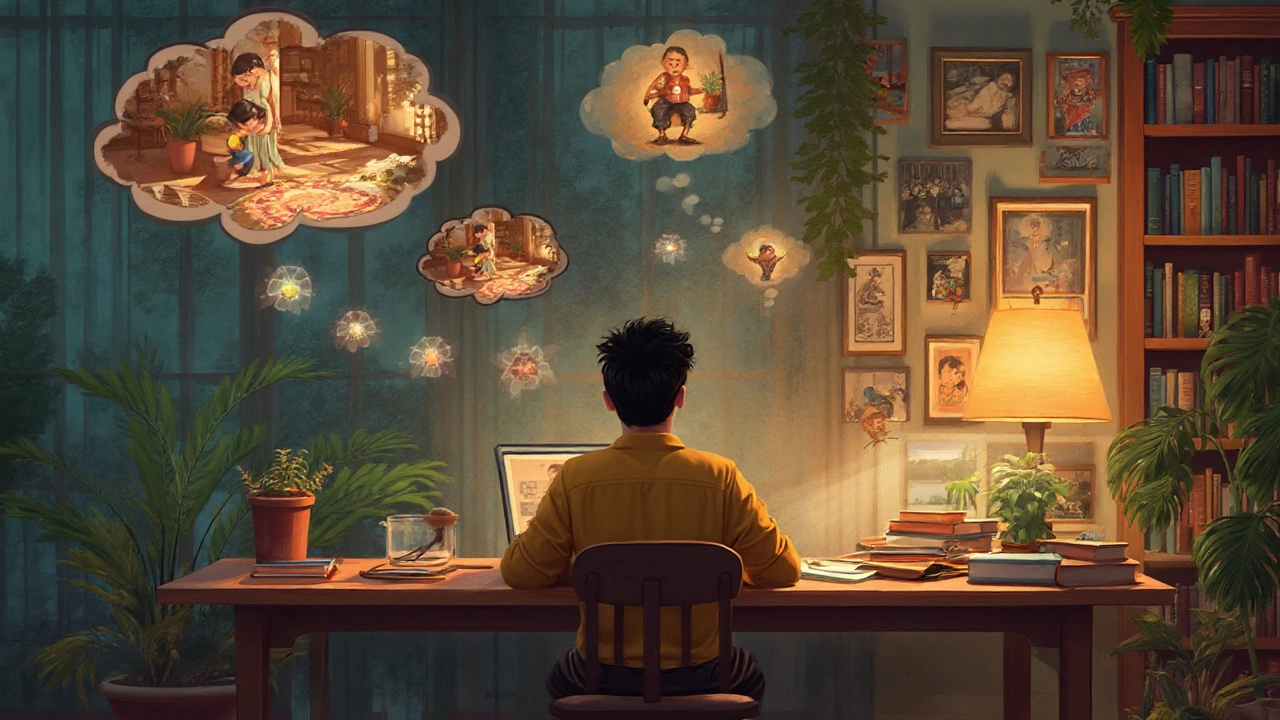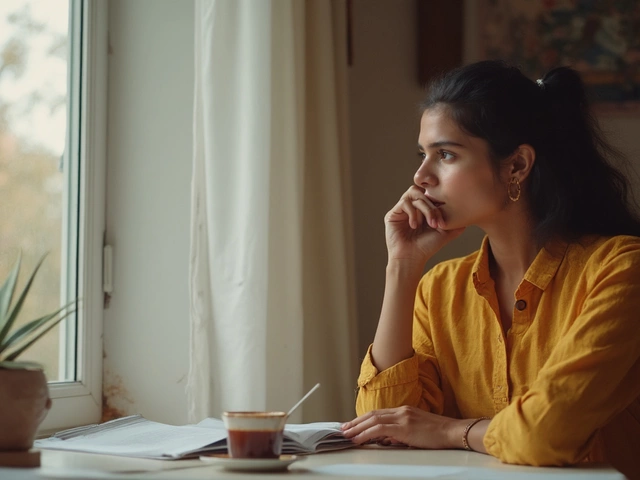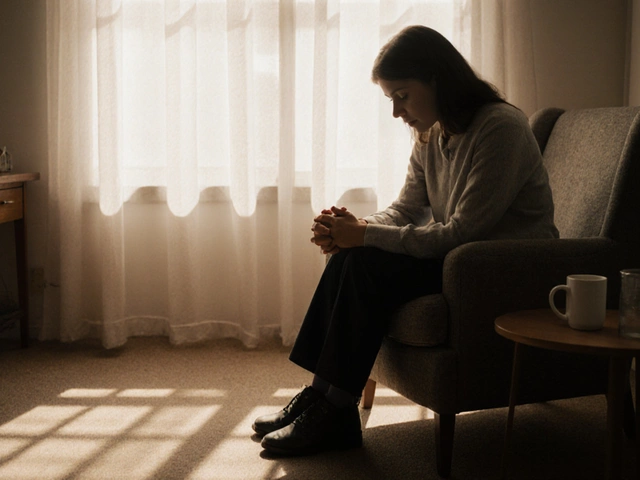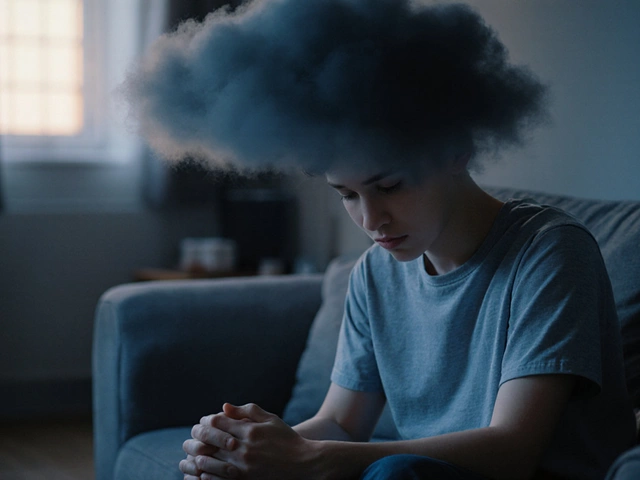If you ask adults with ADHD whether things get easier or harder as they get older, you'll get all sorts of answers. Some will swear their symptoms mellowed out. Others say adulting has turned their brains into a squirrel circus. The truth? ADHD doesn’t simply fade away with time, nor does it always crank up to 11. But the way it shows up in daily life, and the tricks people use to cope, can shift a lot as the years pass.
How ADHD Symptoms Change as You Grow Up
Remember bouncing off the classroom walls in second grade or losing every pencil you owned? Kids with ADHD are notorious for being restless, impulsive, and distracted. But the textbook kid symptoms don’t always stick around in the same way. Studies from Harvard and the CDC show most kids with ADHD keep at least some symptoms into adulthood. But how those symptoms look can totally shift.
As people move from childhood to adulthood, hyperactivity—the constant need to move—tends to settle down. That doesn’t mean it vanishes, though. Instead of running around, it might show up as feeling jittery inside or getting antsy in long meetings. Impulsivity can be more subtle too. Instead of shouting out answers in class, adults might interrupt in conversations, make snap decisions, or spend money without much thought.
What about attention? Here’s where things get sticky. Problems with focus, organization, forgetfulness, and motivation often stick around most stubbornly. The wild part is, many adults never realize these are "ADHD things"—they just think they’re lazy or scattered. "When you’re a grown-up, there’s no teacher to remind you to turn in your homework or keep you on track," says Dr. Russell Barkley, a well-known ADHD expert. "The modern world’s demands for time management, planning, and organization are where adults with ADHD feel it the most."
What really throws a wrench in things is that, as you age, life keeps handing you bigger puzzles. Suddenly you’re expected to juggle bills, jobs, relationships, and sometimes raising your own little tornadoes. One study from 2023 grabbed headlines by pointing out that many adults get diagnosed with ADHD for the first time after a major life shift—like a new job, parenthood, or even retirement—because their old coping tricks stop working.
A wild fact? About 4.4% of adults in the U.S. have ADHD, and experts think the real number might be higher. Plenty of people go undiagnosed late into their 30s, 40s, or beyond. So if your symptoms suddenly seem more obvious, it might not be your brain getting worse, but your life getting more complicated.

Why Symptoms May Seem Worse (or Better) Over Time
So, does ADHD really get worse with age? It’s a trickier question than it sounds. Biologically, your core brain wiring doesn’t really shift much after your twenties. But the way you experience ADHD—and whether it feels harder or easier—can swing a ton depending on what’s happening in your world.
Some people actually get savvier as they age. Decades of trial and error force you to invent workarounds. You find jobs that fit, people who accept you, and routines that keep you anchored. Maybe you use endless reminders, keep everything in plain sight, or harness your need for stimulation in creative outlets. As you learn what works (and what totally doesn’t), things may feel more under control—even if the symptoms never vanish.
But life isn’t always a straight incline. Burnout is real. The constant effort to mask mistakes or keep pace with the expectations of bosses, partners, or parents can wear down even the most resilient folks. This is sometimes called "ADHD fatigue." As stress piles up—especially without good support—symptoms like restlessness, forgetfulness, and mood swings can flare up or spill into anxiety and depression. Dr. Barkley warns,
"ADHD isn’t an excuse, but untreated ADHD is a recipe for feeling exhausted, overwhelmed, and misunderstood."
Another twist: getting older means you’re more likely to deal with other stuff, too—like declining physical health, hormonal changes, or cognitive changes that aren’t just about ADHD. Women, for example, may notice their symptoms spike around menopause. It’s a hormonal roller coaster that can make classic ADHD signs—brain fog, irritability, forgetfulness—pop up stronger than before.
Medication is another variable. Some adults find the right prescription and feel like they’ve finally got a pair of glasses for their brain. But others, especially as they age, have to adjust dosages or deal with new side effects that change the math entirely.
Basically, ADHD isn’t a steady, predictable ride. It’s like driving in a city with endless detours, closed roads, and surprise speed bumps. Sometimes things get easier, sometimes more chaotic. Every decade brings new quirks and challenges.

Managing ADHD at Every Age: Tips That Actually Help
So, if ADHD doesn’t vanish and might even get tougher depending on your life stage, what should you actually do? Here are some tactics that real adults with ADHD say make a big difference—plus a science-backed boost or two.
- Know your patterns. Track your energy, focus, and forgetfulness for a week or two. Spotting when and where things trip you up can help you play to your strengths and shore up the weak spots.
- Use external supports. If your brain treats reminders like background noise, go visual. Sticky notes on the fridge, color-coded Google Calendar alerts, or big physical to-do lists can anchor your day.
- Simplify decisions. Too many choices can paralyze anyone, especially with ADHD. Make routines for stuff like meals, clothes, or bills so you waste less brainpower on everyday picks.
- Find a body double. Working side-by-side (even virtually) with a friend or coworker can help you stay on task. It’s like study hall for grown-ups and it really works.
- Make self-care non-negotiable. Sleep, exercise, and regular meals aren’t just good advice—they’re ADHD medicine. Pulling an all-nighter or skipping meals can send focus and mood off a cliff.
- Consider therapy or coaching. Cognitive behavioral therapy (CBT) aimed at ADHD really does help many adults develop routines and self-acceptance. Coaches can help, too.
- If you’re thinking about medication, find a prescriber who listens. The right kind and dose can sharpen your focus, but it can take some experimenting.
- Lean on your tribe. Whether it’s close friends, support groups, or online spaces, surround yourself with people who get you. Swapping tips or just venting can ease that "why am I like this?" feeling.
And don’t buy into the myth that ADHD is just bad news. Research shows people with ADHD also tend to be super creative, high-energy, and good in crises. The world’s best comedians, inventors, and entrepreneurs are more likely to have ADHD than just about anyone, according to a 2022 study out of UCLA. Interesting trade-off, right?
ADHD doesn’t have to rule your life, but there’s no shame if some days it feels like it does. The sooner you spot your own patterns and build your personal toolkit—whether it’s therapy, meds, or just letting yourself off the hook when dishes pile up—the smoother the journey gets. Remember, it’s not just about taming symptoms, but finding new ways to let your unique brain shine—at any age.








